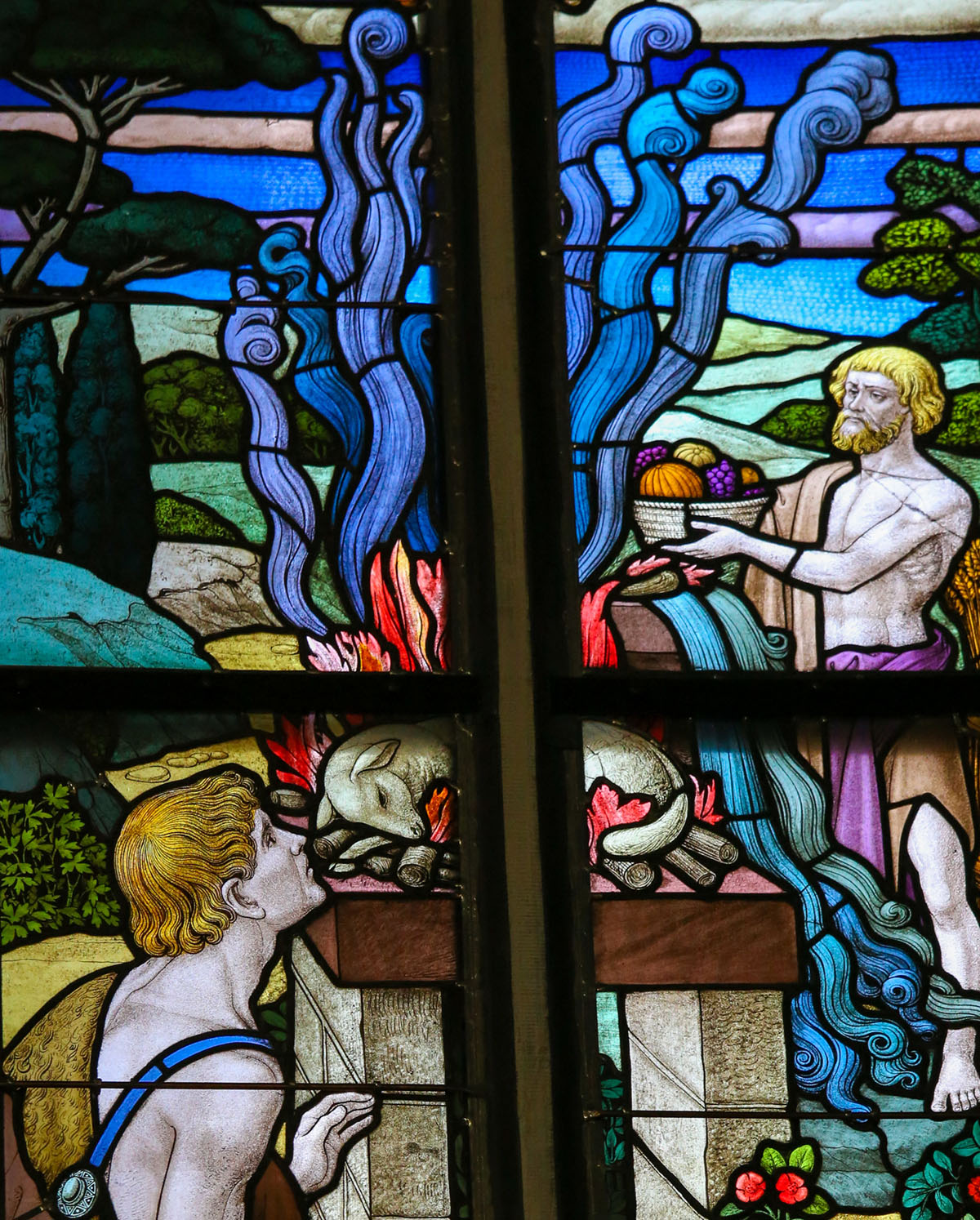Bloody Sacrifices and Salvation
One of the problems with understanding biblical talk about salvation is that we do not live with a sacrificial system. For many Christians, the whole idea of sacrifices is that someone sinned and a bloody sacrifice was required for atonement. Christians believe that because of one bloody sacrifice, that of Jesus on the cross, no other bloody sacrifices need be offered, and we’re very relieved. In Judaism, the sacrifices have been replaced by Torah observance, without sacrifices due to the absence of the temple. Despite the desire of some Jews to rebuild the temple, I suspect the majority are quite happy with its absence.
This was emphasized to me recently as I prepare for (never ending) episodes of my study on Paul, especially as I read Galatians, and even more as I read Hebrews. The problem is that every word needs to be defined, and we are, to a large extent, convinced that we already know what the words mean. In fact, we are so convinced that we can define ourselves right past the message of the scripture we’re reading. As Mark Twain said, “It ain’t what you don’t know that gets you into trouble. It’s what you know for sure that just ain’t so.” (Read more at BrainyQuote).
My purpose here is not to provide a new and perfect (I have been reading Hebrews, after all!) answer to the question of what sacrifice really means. The word means different things in different places. I has a range or ranges of meaning. In cultic terms, as opposed to the more personal,, it seems to grow out of the idea that one needs to communicate with the divine. That can be as simple as the need to present your petitions effectively or as complex as wanting to hear from God, or from the gods, what is the ultimate plan for the physical universe, always assuming there is one.
That’s why you have a complex array of sacrifices and rituals in any religious system. The actual sacrifices and rituals evolve as worship takes place, and as people believe they receive communications, or more specifically directions, from the divine. The actual rituals are a mix of what people expect such things to be (tradition), from what people perceive to have worked (accurately or not), what people have heard, and available options and resources. These rituals will also combine the perceived needs of people, secular authorities, and religious authorities in various measures.
It may seem somewhat irreverent to some to apply this kind of process to biblical rituals, but as I argue in my book When People Speak for God, communication involves at least two termini, and one of those, in this case, is human. The lesser (slower, narrower, less precise) terminus determines the quality of the received message. In addition, a culture does not turn on a dime. Even revolutions are actually evolutionary to some extent.
The result is that the cultic system serves a range of needs. In modern Christianity we’ve come to think of salvation in rather simple terms: Avoid hell, and go to heaven. The intervening problem is that we’re sinners (though that term can get complex too), and the solution is the sacrifice of Jesus. All of which can be quite helpful except that it leaves us living in this world with all the many and varied issues in our lives.
The biblical concept of sacrifice was not quite so narrow. Or, rather, I should say that the biblical concepts of sacrifice were not quite so narrow. There is no particular reason to assume that every author in scripture is going to use the word “sacrifice” (or rather, various words sometimes so translated) in precisely the same way. If you read the texts carefully, you’ll find they are quite varied and nuanced.
In Leviticus, the world is made up of sacrifices. That’s because, for the most part, Leviticus is a book giving instructions about the cult to priests who were to carry it out. In that book sacrifices speak to the continuous presence of God, to atonement for specific sins, to atonement for guilt perceived for unknown reasons, to thanksgiving for blessing, to rituals for healing and purification, and ever so much more. The sacrifices were an integral part of the way the community of Israel was to live in community with its God.
The sacrificial system was not universally loved. For the prophets, it was often a dead routine carried out in Jerusalem by a nation in rebellion. Even earlier we have Samuel’s comment to Saul:
22 And Samuel said,
“Has the LORD as great delight in burnt offerings and sacrifices,
as in obedience to the voice of the LORD?
Surely, to obey is better than sacrifice,
and to heed than the fat of rams.(The Holy Bible: New Revised Standard Version. (1989). (1 Samuel 15:22). Nashville: Thomas Nelson Publishers.)
Or as Hebrews Hebrews 10:5-7 quotes Psalm 40:6-8:
Consequently, when Christ came into the world, he said,
“Sacrifices and offerings you have not desired,
but a body you have prepared for me;
6 in burnt offerings and sin offerings
you have taken no pleasure.
7 Then I said, ‘See, God, I have come to do your will, O God’
(in the scroll of the book it is written of me).”The Holy Bible: New Revised Standard Version. (1989). (Hebrews 10:5–7). Nashville: Thomas Nelson Publishers.
Now the author of Hebrews puts Psalm 40:6-8 into the mouth of Jesus, and here emphasizes something that is often missed in Christian discussions of atonement. One of the claims made by various New Testament writers was that Jesus accomplished God’s will in a way that humans had failed to do. It’s not that we don’t have in mind the idea that Jesus accomplished God’s will. Rather, it is because that is not part of our view of atonement.
I think this is why we so often have trouble understanding something like John 3, in which yet another different view of atonement is presented, one in which we immediately “have” eternal life. The typical response to this is that I’m going to die. How is it that I can have eternal life? But that’s because we get off the track of a desire to create community here and to be in communion with God (and both of these concepts invite further discussion and definition), and have limited our idea to one thing. Where do I spend eternity?
That is a question that doesn’t work well in isolation. It makes faith, salvation, and atonement a narrow and selfish thing. It’s not that we shouldn’t want to care for our eternal reward. Rather, it’s because we shouldn’t try to plan our eternity independently and as a solely future event.
I’m mostly raising questions here, and providing way too little in pointing the way. The key thing I’d like to suggest is that we need to quit reading scripture in the elementary or high school sense of “look the word you don’t know up in the dictionary.” That’s a good starting point. But then you need to allow the context of one author’s work build a nuanced definition for you.
I recall reading Ludwig von Mises’s book Human Action back when I was in college. It’s more than 800 pages of rather intense prose. In that book von Mises creates his own vocabulary. He’ll say that a particular word (psychology, for example, which he replaces with thymology [but not precisely]) has problems of definition. Then he defines the word himself and proceeds to use it in further discussion. If you don’t pay attention, you’ll wind up completely baffled a few pages further. You can’t use the dictionary, because the word is not there. What you can do is develop your own understanding of the term as von Mises uses it.
Try that with your Bible. It can be rewarding!


